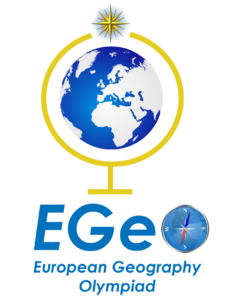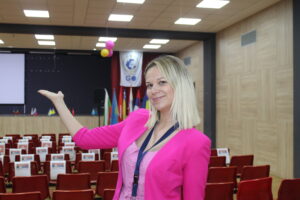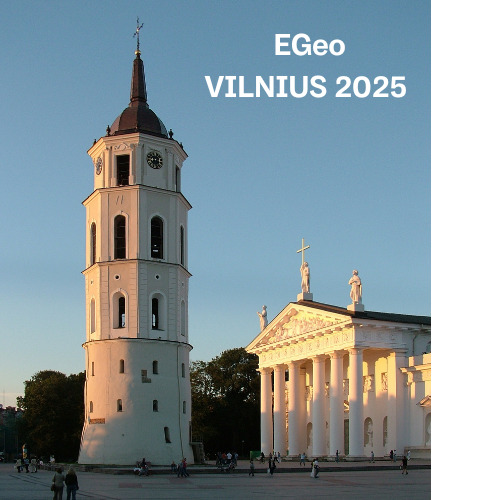STATUTES
Article 1.
Name, Seat and Duration
- The name of the competition is: “European Geographic Olympiad”
- “European Geographic Olympiad“ :
- was createdfrom the competition “Balkan geographic olympiad“, which started operating in 2015.
- extends the continuity of the competition”Balkan geographic olympiad“
- The “European Geographic Olympiad“ is founded by the
- Regional Center for Talents Youth Belgrade,
- Faculty of Geography of Belgrade University,
- Institute of Giftedand And Talent Children & Youth Belgrade
- The competition is domiciled in the municipality of Belgrade, Serbia.
- The competition is established for an indefinite period of time.
Article 2.
The aims of the Olympiad are to:
- A. It allows young people from different countries, social contacts and thus contribute to the understanding among nations. B. stimulate active interest in geographical and environmental studies among young people;
- C. helps in highlighting importance of geography as a science among young people,
- D. helps students as guidelines for participation at higher levels of competition in geography
Article 3.
Committees
The competition recognizes several committees.
- Steering Committee
- Olimpiad Task Force
- Local Organizational Committee
Article 4.
Steering Committee
- The competition’s Steering Committee consists of at least three members and is appointed by this deed forthe first time.
- The Steering Committee is responsible for managing the competition.
- Steering Committee brings amendments to the STATUTE of the competition,
- Steering Committee defines the RULES of the competition
- Promotes the Olympiad;
- Defines the areas, themes and geographical skills to be included in the Olympiad;
Article 5.
Members of the Steering Committee” European Geographic Olympiad“
- Cristina Parvu – Romania
- Nikola Srzentić– Serb
- Danijel Lilek – Slovenia
The Steering Committee has a mandate of four years and all members can be re-elected.
Article 6.
The Task Force
The Task Force consists of one adult leader of each country participating in the present Olympiad.
- Task Force gives suggestions on changes, additions, improvements to the competition and other proposals that are considered by the Sterling Committee
- Select the country to organize the next Olympiad..
- The Task Force will supervise the proper conduct of the Conference as executed by the Local
Organizing Committee (LOC).
- It checks and verifies the students’ results achieved in the competition.
Article 7.
Local Organizational Committee
The Olympiad is organized in cooperation with relevant institutions, for example, the Ministry of Education,local government, a geographical society or another institution in the organizing country, school …The obligations of the local organizer are to:
- ensure the equal participation of all delegations;
- invite the participants,
- forward to these countries not less than eight months before the date of the Olympiad information which gives details of the Olympiad not covered in the Statutes, and gives the names and addresses of the institutions and the persons responsible for the Olympiad;
- forward the areas, themes and geographical skills to be included in the Olympiad, as supplied by the participating countries;
- establish a detailed programme for the Olympiad including a schedule for competitors and adult representatives, a programme of excursions, etcetera. This is to be sent to the participating countries not less than three months in advance;
- check before the arrival of each delegation whether its competitors meet the conditions of the Olympiad
- conduct the Olympiad in accordance with the Statutes;
- be responsible for the financial aspects of the Olympics and publish on time the fee paid by each student and adult.
Article 8.
The participants
- Each participating country has a representative person who nominates and applies students for the competition.
- The Olympiad is a competition between individual students who are between 12 and 19 years old,
- The competition is being conducted in two age categories:
- The first category/ junior/: students aged 12 to 15 years
- The second categories:/ senior/students aged 16 to 19 years
- Representative of the participating countries can register students for both age categories,
- The number of students by age category is at least two and maximum eight. Depending on the available capacities and the total number of participants, the LOC is able to approve a larger number of students from eight.
- In addition to the students, two adult team leaders are invited.
- They must be involved in geography teaching or geography in education in their country.
- Each of them must be able to speak and write the official language of the Olympiad (English).
- One leader has membership of the Task Force. S/he is eligible to participate on one of the jury panels,
- The other leader is the person responsible for the students. S/he may also assist in supervision of the tests and other activities related to the Olympiad.
- The official language of the Olympiad is English
- The Olympiad consists of a competition, social activities and excursions.
- The Olympiad competition of three parts:
- a written test,
- a multimedia test and
- a substantial fieldwork exercise.
Article 9.
The Olympiad tests
The tests of the Olympiad are as follows:
- The marks assigned for the Olympiad are: written test (40% of total marks), multimedia test (20%) and fieldwork exercise (40%).
- Students complete test assignments individually. However, preliminary data collection in the fieldwork exercise, may be carried out in national teams, with all test questions completed individually.
- The tests are based on the guidelines drawn up by the Olympiad . Olympiad assignments test both knowledge and skills in geography.
- The Olympiad assignments are prepared by LOC under the supervision of the Olympiad Task Force.
- Students must produce their answers in the official language of the Olympiad (English).
- All students receive a certificate. Approximately 60% of the participating students receive a medal. Medals are awarded in the approximate ratio of gold 1: silver 2: bronze 3.
- The results are announced and the awards and diplomas presented to the winners at an official ceremony during the Olympiad.
The topics/themes from which the questions in the Written Response Test and Multi Media Test of Olympiad will be chosen are:
- climate& climate change
- hazards
- resources
- environmental geography
- landforms,
- agricultural geography
- population
- economic geography
- development geography
- urban geography,
- tourism
- cultural geography
Required skills:
- map skills
- inquiry skills
- Graphic skills (read, analyse and interpret images, photos, statistics, graphs)
The committee that designs the test chooses 6 topics/themes from the list of 12 for a written test
The Multi Media test will cover all 12 topics from the list
The Fieldwork Exercise consists of: 1. Observation and mapping 2. Analysis of spatial issue in fieldwork area including additional data gathering 3. Problem-solving exercise leading to a proposal including a spatial plan or map.
Article 10.
The financial principles
The country which sends the students to the Olympiad pays:
- the travelcost, insurance and, if applicable, visa costs of the students and of all accompanying persons to the place at which the Olympiad is held;
- a fee to the local organizer for each student and adult as a contribution to other costs.
- The local organizer covers all other expenses incurred in holding the Olympiad.
Article 11.
Final stipulation
Participation in a Geography Olympiad signifies acceptance of the present Statutes by the institution responsible for sending the delegation.
Steering Committee


